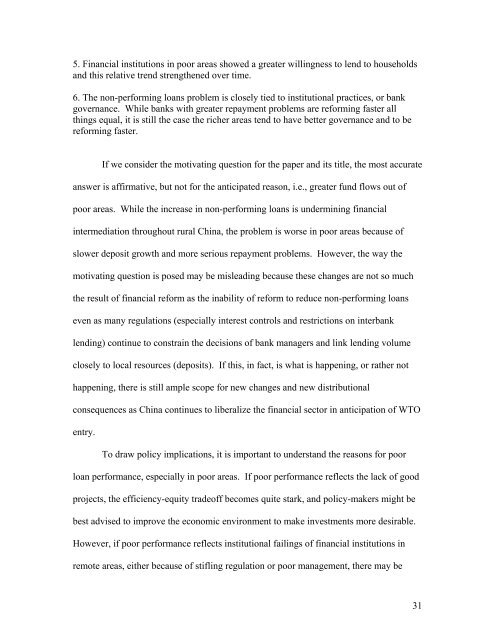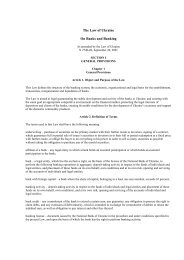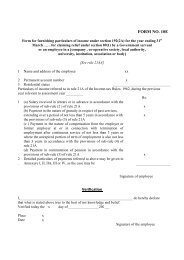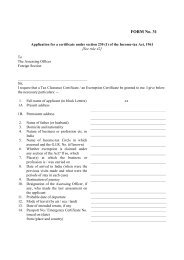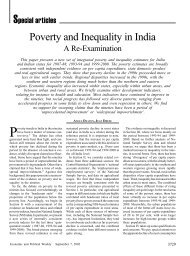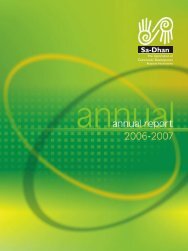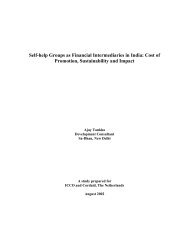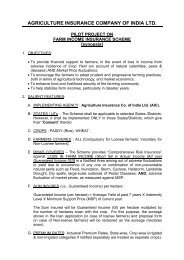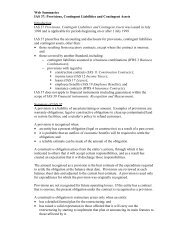Are China's Financial Reforms Leaving the Poor Behind - Harvard ...
Are China's Financial Reforms Leaving the Poor Behind - Harvard ...
Are China's Financial Reforms Leaving the Poor Behind - Harvard ...
You also want an ePaper? Increase the reach of your titles
YUMPU automatically turns print PDFs into web optimized ePapers that Google loves.
5. <strong>Financial</strong> institutions in poor areas showed a greater willingness to lend to householdsand this relative trend streng<strong>the</strong>ned over time.6. The non-performing loans problem is closely tied to institutional practices, or bankgovernance. While banks with greater repayment problems are reforming faster allthings equal, it is still <strong>the</strong> case <strong>the</strong> richer areas tend to have better governance and to bereforming faster.If we consider <strong>the</strong> motivating question for <strong>the</strong> paper and its title, <strong>the</strong> most accurateanswer is affirmative, but not for <strong>the</strong> anticipated reason, i.e., greater fund flows out ofpoor areas. While <strong>the</strong> increase in non-performing loans is undermining financialintermediation throughout rural China, <strong>the</strong> problem is worse in poor areas because ofslower deposit growth and more serious repayment problems. However, <strong>the</strong> way <strong>the</strong>motivating question is posed may be misleading because <strong>the</strong>se changes are not so much<strong>the</strong> result of financial reform as <strong>the</strong> inability of reform to reduce non-performing loanseven as many regulations (especially interest controls and restrictions on interbanklending) continue to constrain <strong>the</strong> decisions of bank managers and link lending volumeclosely to local resources (deposits). If this, in fact, is what is happening, or ra<strong>the</strong>r nothappening, <strong>the</strong>re is still ample scope for new changes and new distributionalconsequences as China continues to liberalize <strong>the</strong> financial sector in anticipation of WTOentry.To draw policy implications, it is important to understand <strong>the</strong> reasons for poorloan performance, especially in poor areas. If poor performance reflects <strong>the</strong> lack of goodprojects, <strong>the</strong> efficiency-equity tradeoff becomes quite stark, and policy-makers might bebest advised to improve <strong>the</strong> economic environment to make investments more desirable.However, if poor performance reflects institutional failings of financial institutions inremote areas, ei<strong>the</strong>r because of stifling regulation or poor management, <strong>the</strong>re may be31


